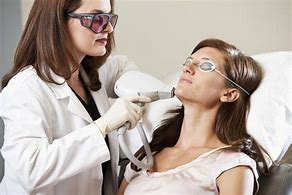According to medical reports, specialization in dermatology could help resolve the lack of proper diagnosis and treatment of skin ailments in the United States. The survey by JAMA dermatology of 137 health institutions reveals that the institutions do not teach specialized courses in dermatology.
Inadequate specialization in dermatology
Dr. Jules Lipoff, from the faculty of dermatology at Pennsylvania University, says that it is very hard to find a dermatologist in the U.S., a situation credited to the inadequate specialization in dermatology of medical practitioners. Jules reiterated that medical practitioners are not adequately equipped for diagnosis and treatment of skin ailments due to little or no training in the institutions.
Researchers probed the student leadership at the medical institutions for the period and fid follow-ups through emails. According to 135 medical schools that participated in the survey, only 12 percent undertook specialization in dermatology and 36 percent had only included it as sections of their studies. Out of 136 schools, only one percent had included a third-year medical internship which lasted for four weeks.
Among the reasons cited was limited time as schools had to choose what to offer for the long time spent in medical colleges. To be an accredited dermatologist in America, one has to complete medical school as well as internship and residency in dermatology as well as passing examinations administered by the Dermatologists board in the U.S.
Focus on critical cases of ailments
Dr. Lipoff admitted that if medical practitioners were well-equipped for treatment of skin-related ailments, it would allow specialists to spend time only on critical cases of ailments. Dr. Eric Stratman, a director at Marshfield Hospice implored that the addition of training in the skin was important because these doctors treat most of the reported skin problems.
The researchers also noted that whenever non-dermatologists took up a skin-related case, they were only competent in diagnosis from 20 percent to 50 percent. Stratman added that the provision of online courses by institutions that offer specialization in dermatology would provide a perfect resource program without the need for conferences in dermatology.
He also noted that any online program would be as resourceful as the medical institution incorporating it.
Dr. Lipoff insinuated that medics undertaking different specialties existed in their bubble but a common and broad curriculum would bring them to work together.
Featured image credits: Mc Edge Dermatology







